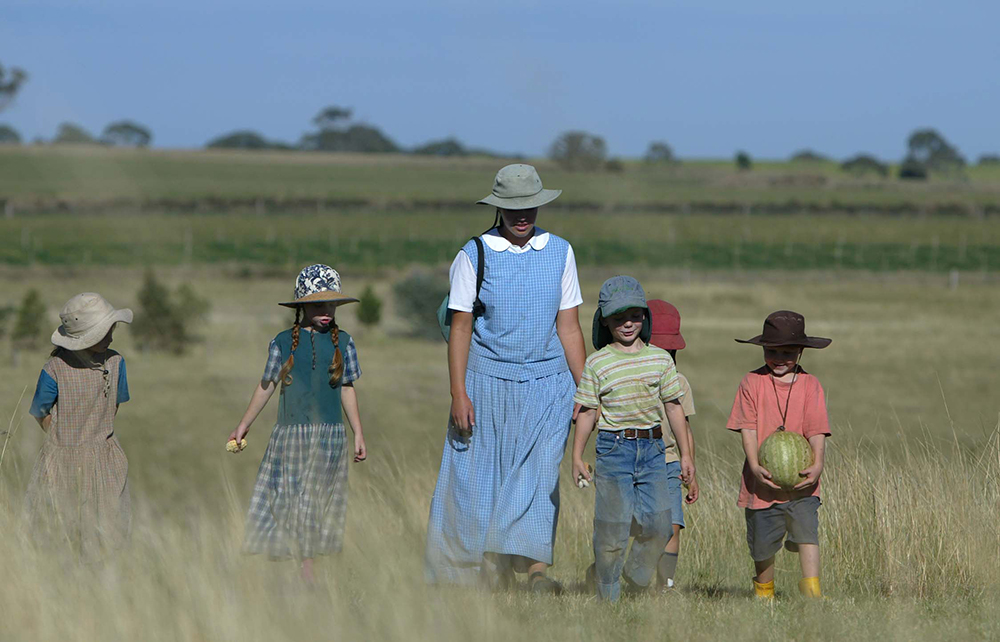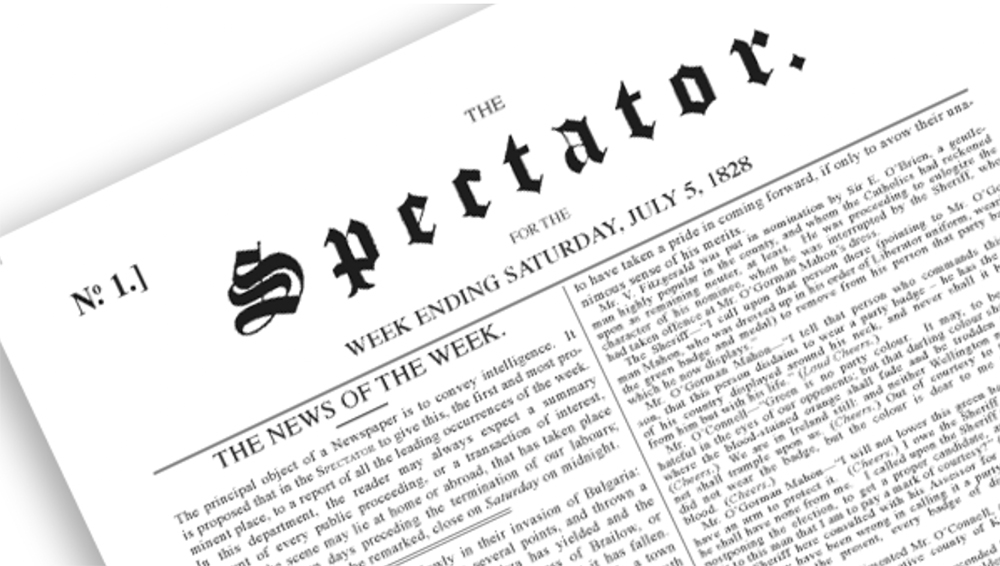
‘The only solution for anger at your husband is to bake him a pie,’ says the eponymous heroine of Kate Riley’s first (and, she claims, last) novel, Ruth. ‘She heard it first from her mother and understood: daily acts of love were the best way to express anger.’
This is advice that Ruth both eyerolls and obeys. Born in the late 1960s and raised in a closed, communist, Christian community, she’s a beguiling, original character whose playful wit and innocent anarchy poke holes in the bubble world she inhabits without ever trying to push her way out. Instead, she invites us to imagine a society in which there are no possessions or individual choices, no recorded music or tampons, but lots of tray bakes and time to think.
She appears to be describing the American chapter of the Bruderhof community of pacifist Anabaptists who live in 23 communes around the world. It’s an insular faith with only 3,000 members and three communes in the UK. Riley has offered only sparse specifics of autobiography. Her protagonist also keeps the details vague. Readers, like community members, should be content with higher truths instead of seeking worldly facts. Our narrator isn’t sure of what’s ‘normal’ and what we’d need to know about her world anyway. This means your inner gawker is craning around the corners of each weird lifestyle quirk.
What we do learn is that the community is patriarchal. Men do both intellectual and outdoor work – with a few venturing into the wider world – while women cook, clean, tend children and police each other’s morals. Families share accommodation with other families, shunting their children around to ensure blood ties don’t breed pride or trump the equal love that community members should feel for all. Those assigned to live ‘single-hearted’ are billeted separately. They’re all led by ‘the Servant’ and his wife (whose seniority is vaguely defined though clearly felt). But all decisions are prayed over and sought through such laborious consensus that community members are often thrown into comical disarray when a long-standing item on their shopping list is discontinued.
Ruth’s separation from America’s wider culture means she finds her own language for forbidden thoughts. It’s delightful. When she gets a crush on a boy and he glances back, she ignites with the knowledge she’s ‘on to something’. Her more eccentric acts don’t fit into the standard concepts of sin and punishment, bewildering her brethren, who have ‘no balm for oddness’. Her many unvoiced questions lead her to suspect both language and herself: ‘She heard lies in every word, especially if she was the one saying them.’
Although this is a slim novel, it spans most of its heroine’s existence. We bear witness to curiosity dulled by submission. Ruth is assigned a husband and gives birth. Postnatal depression is a devil she must fight alone. The hope of christening her daughter ‘Idea’ is quickly snuffed. In this world, it’s a bad idea for women to have ideas. Most of the men’s ideas (including an eccentric plan to raise money by breeding dogs) also founder. They’re all stuck with the same songs, recipes and Bible verses.
The downside of this spiritual erosion is that Riley’s prose loses its glitter and momentum in reflecting Ruth’s experience. Snapshots of her in middle age – wondering absentmindedly about emailing those who’ve left the community – are so tenderly sad I suspect they could be portraits of the author’s mother.
By the end of this visit to a freak world, readers may be questioning how frequently we all submit, with age, to the oppressions and hypocrisies of our own cultures. Most of us end up cracking on, seeking consensus through democracy; all abiding by the rules of capitalism and the tech bros who pitch themselves as the servants of technology. If friends suggest opting out – going to live off grid, say – we’d probably respond much the way Ruth does when a friend urges her to flee her community. If this really is Riley’s first and last book, then she’s played a blinder.







Comments